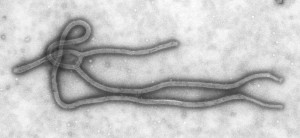 A flight from Houston was delayed at Orlando Airport, after a traveler began showing signs of illness. The plane was bound for BWI.
A flight from Houston was delayed at Orlando Airport, after a traveler began showing signs of illness. The plane was bound for BWI.
The incident happened at 3 pm last Monday on flight 718 of Southwest Airlines, according to airport officials. Immediately after it was revealed that the passenger had traveled to Kenya in West Africa in August, the pilot notified the Center for Disease Control. The man was isolated and removed from the flight.
However, after being examined by a medical team, it was discovered that the traveler had not fit the criteria for Ebola or any other infectious disease.
Fortunately, Orlando International Airport has no direct or nonstop flights to Ebola-stricken countries in West Africa. Hours after the first person with Ebola in the U.S., after traveled to Liberia, died in a Texas hospital, federal health officials announced new measures in preventing the deadly disease from entering the country.
Screenings will be introduced at five major U.S. airports. They will include temperature screening to find feverish travelers as well as passengers will be asked to answer a series of questions on their health and contact history, and possible exposure to Ebola. If concerns arise, the traveler will be isolated and taken to a local hospital for further observation and testing.
About 150 people travel from the three Ebola-stricken countries to the U.S. every day and the screenings at the five designated airports will begin on Saturday: New York’s John F. Kennedy Airport, Hartsfield-Jackson Atlanta International Airport, Washington Dulles Airport, Newark Liberty International Airport and Chicago O’Hare Airport.
However, the focus is mostly on stopping the epidemic in West Africa, said the director of the Centers for Disease Control and Prevention, Tom Frieden, in Atlanta.
At the same time Florida officials are currently seeking added travel restrictions against the spread of the Ebola virus and Orlando Airport is looking at curbing any possible threat from Ebola.
Preparations are already being made in hospitals throughout central Florida.
Dr. Phillips Hospital has a dozen of the so-called “negative air flow rooms” that could serve as an added precaution to keep the virus Ebola from spreading.
The air-flow system in such a room keeps all the air inside even when the door is wide open. The hospital is stocked up with personal protective equipment suits.